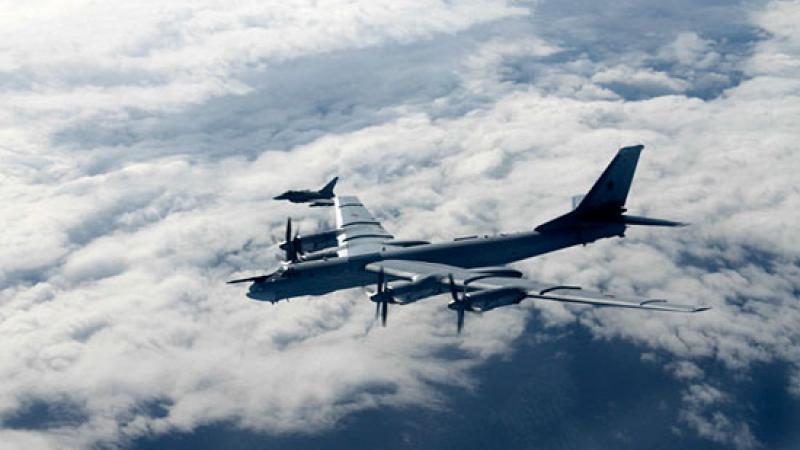Exclusive: 'I will never surrender to Taliban,' says leader of Panjshir resistance
"I will fight them," vowed Ahmad Massoud from his hideout in an undisclosed location, as the Taliban revealed a slate of hard-liners to run their new government.
As the Taliban revealed a slate of hard-liners to run their new government, the embattled chief of the Panjshir resistance told Just the News that his forces will not submit to the Shia-driven regime.
Ahmad Massoud, who leads the holdout movement in Panjshir, made his comments on Tuesday exclusively to Just the News.
"I will never surrender to the Taliban," Massoud said, communicating from his hideout in an undisclosed location. "I will fight them."
The enemy is not acting in good faith, Massoud suggested.
"The Taliban want the world to recognize them, and then they want to oppress the Afghan people again," he said. "If someone invades our land, we will fight against it and defend ourselves and the rights of the Afghan people."
Massoud's comments come as the Taliban installed a new government comprised of an FBI-wanted terrorist, along with other holdovers from the group's previous, hard-line regime. The wanted man is Sirajuddin Haqqani, who is the subject of a $5 million FBI bounty, in part for holding an American hostage, contractor Mark Frerichs, who disappeared last year in Afghanistan.
The Taliban on Monday posted videos on social media, depicting themselves raising their flag outside the provincial center in holdout Panjshir. The group's spokesman declared that their forces now have completely prevailed inside Afghanistan.
"Panjshir province as the last hideout of the last fleeing enemy was captured last night and today, and the forces of the Islamic Emirate of Afghanistan are presently active there," spokesman Zabihullah Mujahid told reporters in Kabul.
Although the Taliban have established their rule in Afghanistan, the resistance movement has held fast in a longtime stronghold of independence, northeast of Kabul. The movement took hold in the mountains of Panjshir, home to the legendary "Lion of Panjshir," Ahmad Shah Massoud, a guerrilla commander who fought Soviet forces inside Afghanistan. The "Lion" subsequently fought the Taliban regime, and was killed in 2001. The current movement rallied under his son, Ahmad Massoud. The group is known locally as the Second Resistance, and is referred to in the U.S. as a rekindled Northern Alliance.
Reports from Panjshir are spotty and inconsistent, with poor communications. People inside the region report via neighbors and other means that the Taliban have cut the access to cell phones and internet. In their messages to the outside world, the Panjshiris report a dynamic and violent environment.
The Taliban in recent days massacred civilians inside Panjshir, according to two sources within the resistance. The alleged massacre took place in Baad qol and Omarz village, the sources said.
The resistance struck back.
"The Taliban suffered heavy casualties in Panjshir," according to one contact inside the movement in Afghanistan. "There is a war going on in the lower areas of Panjshir. All the resistance fighters are in the mountains."
The reports have not been independently confirmed by Just the News.
The mountains work to Massoud's advantage, a former military intelligence official said.
From high perches, the resistance can attack enemy forces in the valley, according to D. De Morrow, a former U.S. Army all-source intelligence specialist.
"I think they will continue probing attacks and what they did with the Soviets," De Morrow said. "It works. If the people keep standing up like they have started, they have a chance."
State-sponsored media in Russia — descendants of the former Soviet adversaries — echoed those observations.
"Experts ... believe that the activities of the resistance are spilling over into partisan warfare," the Russian news agency, Tass, reported on Tuesday. "The complex geography of the region plays into the hands of the Panjshir people."
The resistance effort will take time, De Morrow noted. Another factor that favors the resistance, he said, is that the newly installed government stems from the past.
"They don't speak the common language," De Morrow said. "In the north right now, they are seen just like the U.S. and NATO, an occupying army. If Massoud can tap into that more with some battlefield wins, he has a chance."
The resistance aims for peace, according to its leader, Massoud.
"We want peace, and we also want a comprehensive government, that is, a government in which all the people of Afghanistan participate," Massoud said.
The Taliban did not immediately return requests for comment.














